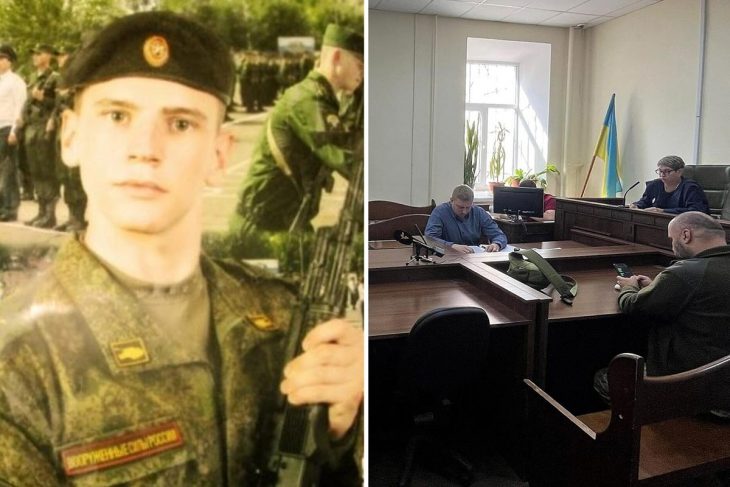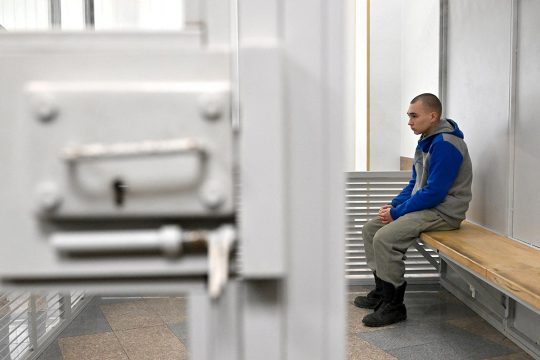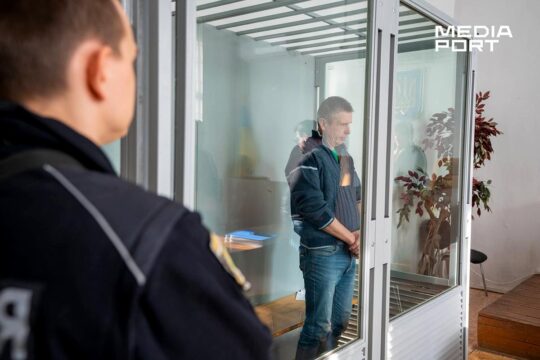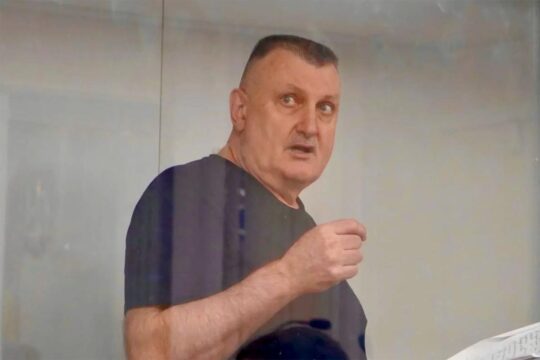23-year-old Serhiy Steiner, the deputy commander of a military company located in the village of Totske-2, Orenburg region, 1200 km south-east of Moscow, has been in the Russian army since 2016, when he entered the Omsk Armored Engineering Institute. At the beginning of March 2022, the lieutenant and a convoy of BMP (infantry fighting vehicle) and tanks entered the village of Lukyanivka in the Kyiv region, the capital city of Ukraine.
Later, escaping from the counteroffensive of Ukrainian troops, Steiner left his tank and fled the village. It would be journalists who helped identify him, by making public his documents found in the armored car. Their investigation became part of a case file, and one of the journalists, a witness.
At the beginning of May, an international warrant was issued against the Russian soldier and at the end of that month, the Kyiv Regional Prosecutor's Office sent an indictment to the Solomyanskyy District Court for an investigation in absentia.
An in absentia trial has to follow a certain procedure: the accused is summoned to the court and after several non-appearances (making sure that the person evades justice), the judge must approve a request for special court proceedings and then proceed to the consideration of the case on its merits. The review of Steiner's case in court stretched over 4 months, taking into account the summer vacation of judge Oksana Kryvorot.
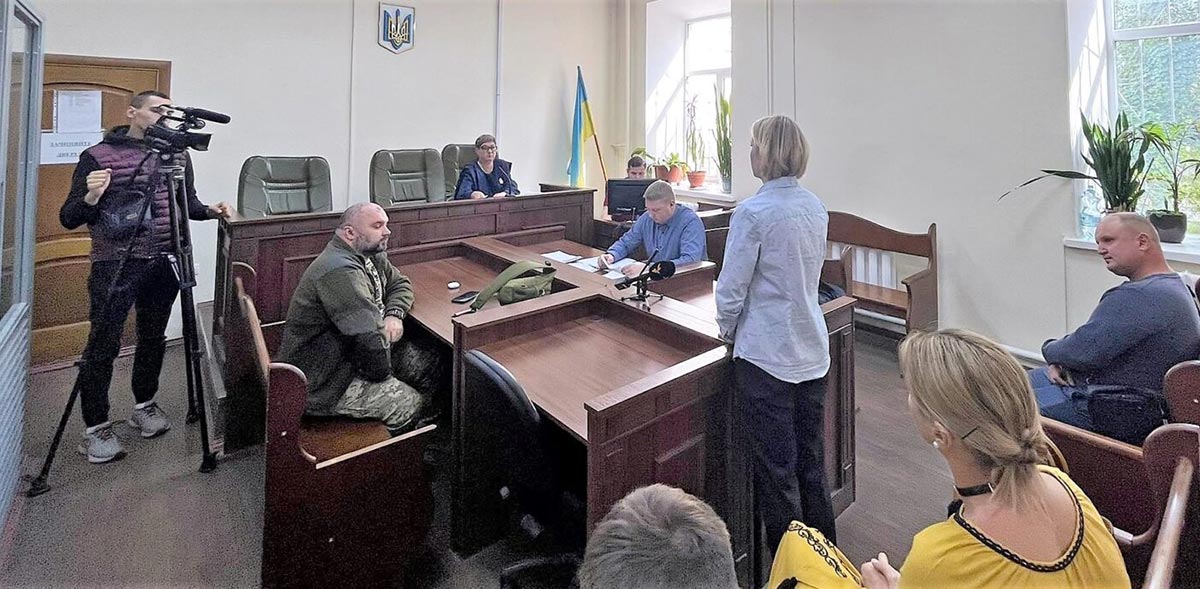
At the victims’s house
Steiner was tried for the violation of the laws and customs of war. According to the indictment, during the occupation of Lukyanivka, the lieutenant ordered the soldiers of the armed forces of the Russian Federation who were under his command to rob civilians. The occupiers broke into apartments, destroyed and damaged private houses, farm buildings, and ran over a car with a tank.
One resident of Lukyanivka suffered about 150,000 hryvnias (about 4,200 euros) in material damage – a gasoline generator, concrete slabs and a Volkswagen Caddy that was run over. Oleksandr Gudym had stayed with his mother in Lukyanivka, and in an interview he described how the Russian military "settled" in the neighborhood. “
I was there with them for 21 days. Life went on, only there were unwanted neighbors. They came to us, stood in the neighboring yard, and camped there. I saw them 20-30 meters away. There was a tank, the barrel was already in my yard. They ate on a neighbor's beehives. Machine gunners (or whoever) would stay on duty on a tank, and go somewhere on assignments," Gudym told us.
In court the victim gave further details.
“On the first day, they spent the night outside, and did not enter [the house]. On the second day, they came in and said not to use a flashlight at night, not to make any unnecessary movements, and that if you go out somewhere, it had to be with permission,” Gudym testified.
“Didn't they ask for food?” said the judge.
“Well, they asked... but they "asked" with weapons. They didn't take it themselves, we had to give it. They "asked" for potatoes, eggs...”
There were no livestock in Gudym's household, only chickens. After the shelling, the occupiers took away the beaten chickens, and chopped up the ones that were still alive. "He [a Russian soldier] used to come to my mother and say: 'Mother, two eggs will be exchanged for two dry rations.'”, Gudym told the court.
- “And where did they wash?” Asked the judge.
- “At people's houses. This guy came and asked: "Where is your banya [steamed Russian public bath]? Where do you bathe?". I said the shower’s in the house. But he didn’t understand me at all : “What? Water in the house?”
Eye witnesses
Prior to that, Gudym's house was damaged by the shelling. The veranda was knocked down, the roof and walls were partially destroyed. The victim also knows about one death in the village – someone who died from injuries from debris – and another man who lost an eye.
During the occupation, the Russians shot through the lock in Gudym's garage and took out the gasoline generator, concrete slabs for trenches, and seized his phone (which was later found). “I understood that they had a hierarchy. There were a couple of men in charge of supply, they took firewood, they carried water. Firewood was taken by force to heat houses and their dugouts. A military man named Serhiy was giving orders to two soldiers on duty near the tank. He was their superior”, the victim stated.
He recognized Steiner from a photo.
The Russian soldiers also settled at Svitlana Maruzhenko’s house, a neighbor of Gudym. The woman recalls that the occupiers did not understand what she was saying, as she spoke Ukrainian. She then moved to her sister’s house at the other end of the village. She testified that the leader among the Russian soldiers was addressed by the name Serhiy. She also recognized Steiner from the photo.
“He talked to me more defiantly. The rest did not communicate, mainly he led the conversation,” she said. Gudym told the court how on March 24, during the liberation of the village by the Ukrainian military, Russian soldiers damaged his property. While fleeing, the Russian tank drove into the depths of the village, through a fence, a car and a warehouse and into the forest. It knocked beehives over to the neighbor's apiary, damaged gas pipelines and power lines.
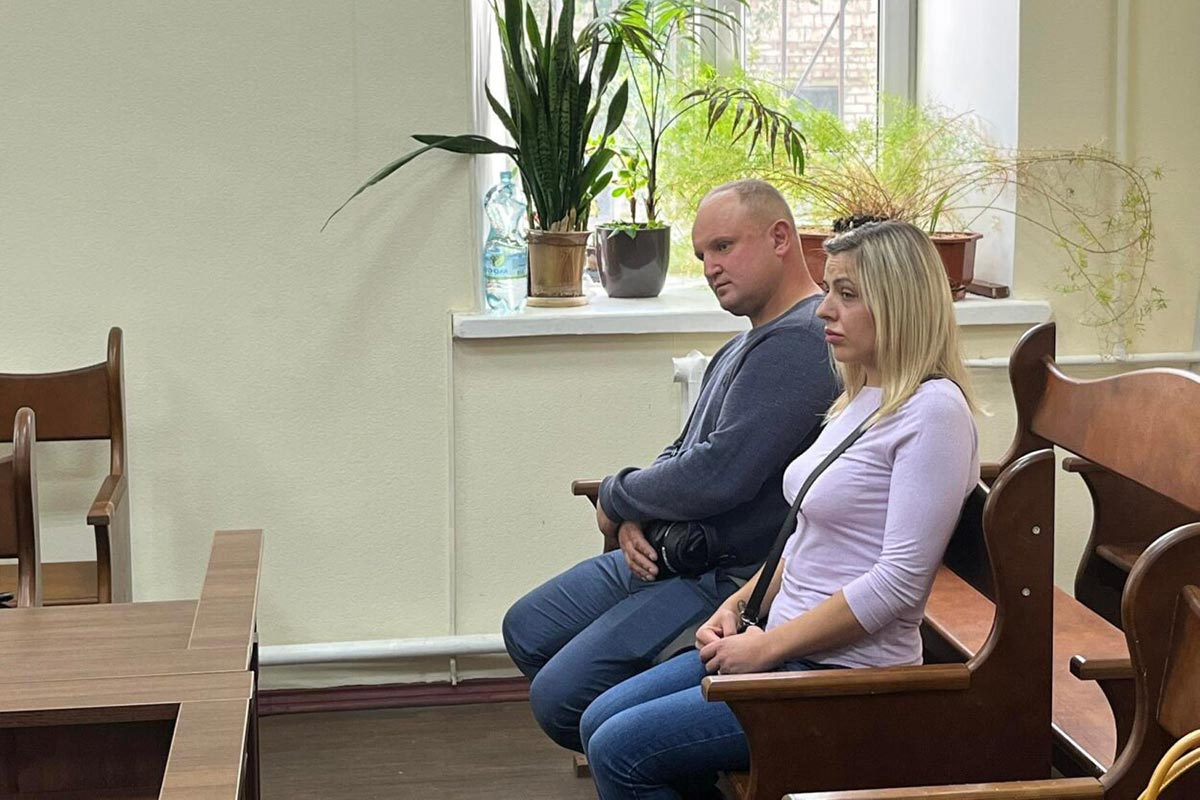
Screenshot from the Vkontakte network
Another witness in the case was Kira Tolstiakova, a journalist of the Ukrainian service of Radio Liberty. She explained to the court how their own investigation into Steiner’s case began.
“My colleague Maryan Kushnir, who is a military correspondent, was in the village of Lukyanivka at that time. This village was liberated by the Ukrainian military and he received documents from the Ukrainian military that were found in one of the Russian tanks. He took pictures, sent them to me via messenger and asked if we were interested in studying these documents. Because I work in the investigation project, our task includes the identification of Russian servicemen. I looked at these documents - it was a bag of a soldier of the Russian Federation, which contained a medical record. In the medical book, it was written in detail who it belonged to - Steiner Sergey Dmytrovych. His age was indicated, his position and rank - lieutenant, deputy commander of the weapons company. The military unit, place of birth, and location of the military unit were also indicated. It said he is married, with his contact phone numbers. There was another document about the material transported in the tank received to fight in Ukraine,” Tolstiakova explained.
Journalists found Steiner's social network’s profile. They got in contact with him.
The case file shows that on March 27, while in the range of a cellular base station in the village of Lukashi, less than 6 km from Lukyanivka (a more precise address was not established during the investigation), Steiner threatened to kill a journalist in WhatsApp and Telegram messengers. But the witness did not talk about it during her examination in court.
Defense: no originals, no direct evidence
Steiner was defended by a lawyer appointed by the free legal aid center Viktor Ovsyannikov, who had also represented Russian serviceman Vadym Shishymarin, the first to be tried for war crimes committed in Ukraine. Ovsyannikov asked Tolstyakova whether she had seen the originals of the Steiner documents she was talking about. The witness said no, but that she trusts the colleague who held the originals in his hands.
The prosecutor asked for 9 years of imprisonment for Steiner. (The law provides for a prison term of 8 to 12 years.) "Taking into account the examined evidence, we can come to the conclusion that Steiner acted with direct intent, which was aimed at cruel treatment of the civilian population and other violations of the laws and customs of war," Mykola Styopin said.
Counsel Ovsyannikov drew the exact opposite conclusion. “In view of the collected evidence and the information that became known during the judicial investigation, I come to the conclusion that the guilt of my client has not been proven, there is no direct evidence that he committed the crime he is charged with. There are no direct testimonies of both the victim and witnesses that would point to the specified person,” he told the court.
On September 26, judge Kryvorot announced the verdict — 9 years in prison. It was the first trial in absentia to come to an end in Ukraine’s war crimes proceedings. At the judge’s last words, the siren of an air raid set off.
This report is part of a series on war crimes, produced in partnership with Ukrainian journalists. A first version of this article was published on the Sudovyi Reporter website.



